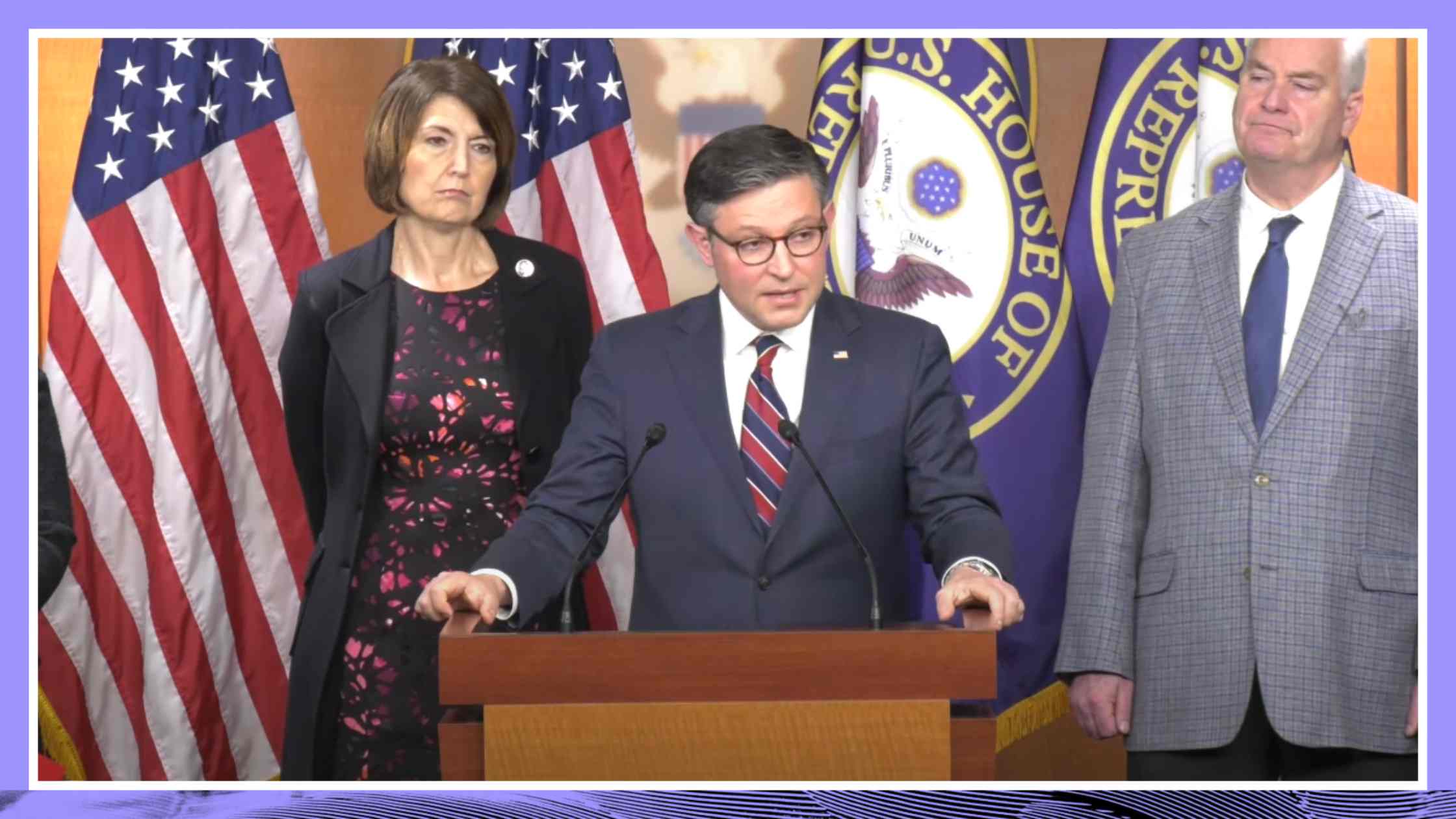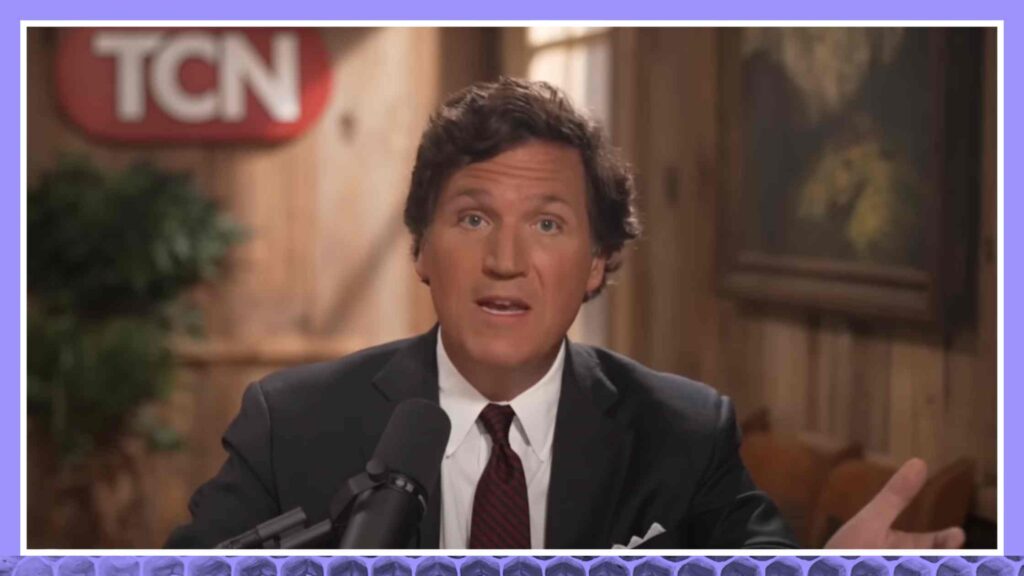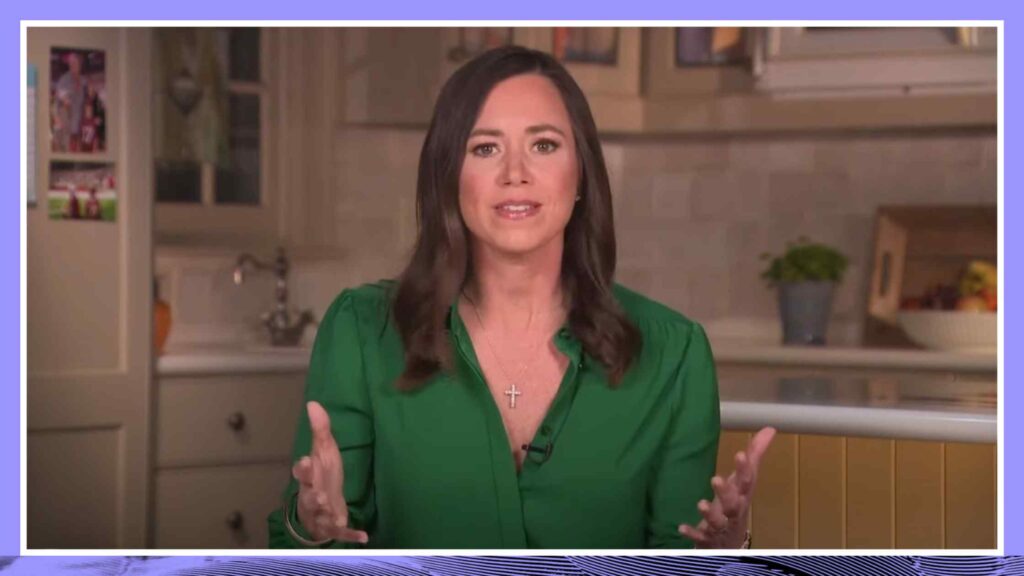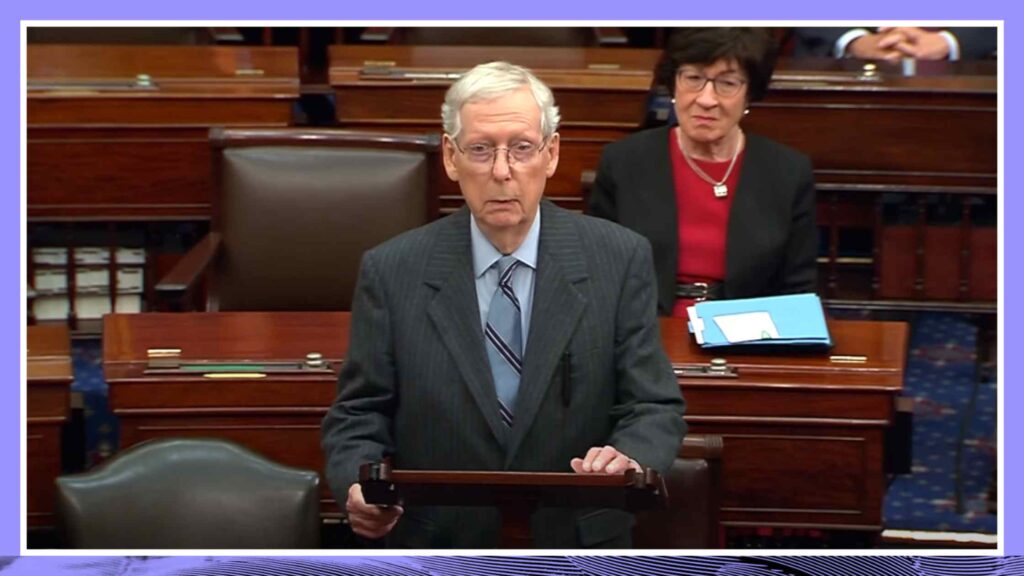Dec 13, 2023
House Republican Leadership Press Conference 12/12/23 Transcript

Mike Johnson Speaks at House Republican Leadership Press Conference 12/12/23. Read the transcript here.
Transcribe Your Own Content
Try Rev and save time transcribing, captioning, and subtitling.
Speaker Johnson (00:01):
Thank you, Mr. Leader. I appreciate that Year in Review. There is a lot to discuss and to remember. It seems like this year was multiple years, doesn’t it? There’s a lot going on. Look, democracy is messy sometimes, but we work in the greatest deliberative body in the world, in the history of the world, the United States Congress. And the House Republican Majority is moving the ball forward to continue to lead.
(00:22)
I do want to talk about just very briefly this healthcare bill because this is a big thing. I’m really grateful to Chairwoman Cathy McMorris Rodgers and Energy and Commerce Committee, her committee, for their leadership on this important issue. On top of spending $15,000 more annually just to afford basic goods, American families, we all know right now, are struggling. And they have to contend now, of course, with a needlessly opaque, inefficient, and an unaffordable healthcare system.
(00:51)
We have to do something about that. So the Lower Costs, More Transparency Act that will pass is our House Republicans making good on our efforts to bring down the cost of healthcare and empower American people to make their own healthcare decisions and not have the government and bureaucrats in the way. The bill is a broad, bipartisan supported piece of legislation. It arms patients with accurate and transparent information about the cost and care of prescription drugs. That’s a big deal as you’ve heard discussed here.
(01:19)
It supports community healthcare centers and preserves Medicaid for hospitals that serve rural communities. Many of them I represent in my district in Louisiana. And this is a critical and necessary assistance for rural healthcare providers, make no mistake about that. And also, this bill is going to expand access to generics and lower out-of-pocket costs for our seniors. And they desperately need that relief and we all know it.
(01:43)
And here’s the kicker. As was noted, the entire package is fully offset, and so it actually reduces the deficit by more than $700 million. What a concept. House Republicans are committed to making healthcare more affordable and prices more transparent, and we are committed to doing so in a manner that is fiscally responsible and improves care for our constituents. So we’ll be happy to pass that off the House floor.
(02:07)
I know you probably have a few questions. We’ll take a few. We’ll go … Chad, I owe you one. Go ahead.
Chad (02:12):
Good morning. Thank you. Thank you, Mr. Speaker. Good morning. I keep hearing from Republicans, you say, “We’re going to follow the facts where we lead on this impeachment investigation,” but aren’t there going to be a lot of conservatives in your party, because this has been drummed up for so long, “We’re going to do impeachment. We’re looking at these tax records. We’re looking at the Hunter Biden stuff here,” that if you guys don’t call an impeachment vote in the next few months, they’re going to say, “Wait a minute, that’s it.” I mean, haven’t you put them over the barrel a little bit if you in fact do not have a vote to impeach the President of the United States in a couple of months?
Speaker Johnson (02:42):
Chad, we’re following the Constitution and I’ve made this very clear. Remember, my background is constitutional law. I served on an impeachment defense team twice under President Trump. We developed, unfortunately Elise and I, in expertise in this area. This is not something they really covered in law school.
(02:55)
What you know about impeachment, if you look at the Constitution, is it’s a heavy authority that’s given to the House, specifically to the House. That’s where the power lies. And next to the Declaration of War, you’ve all heard me say many times, I think it may be the heaviest power that we have. It’s very, very serious business. It has to be conducted in that way. The impeachment inquiry is necessary now, as Whip Emmer just explained, because we’ve come to this impasse where following the facts where they lead is hitting a stone wall because the White House is impeding that investigation now. They’re not allowing witnesses to come forward and thousands of pages of documents.
(03:26)
So we have no choice to fulfill our constitutional responsibility, we have to take the next step. We’re not making a political decision. It’s not, it’s a legal decision. People have feelings about it one way or the other. We can’t prejudge the outcome, the Constitution does not permit us to do so. We have to follow the truth where it takes us and that is exactly what we’re going to do.
(03:47)
And I’ll note too, I know that people are frustrated sometimes with the time that’s being invested in this, but this is the way the founders anticipated that something like this would go. There shouldn’t be any such thing as a snap impeachment, a sham impeachment like the Democrats did against President Trump. This is the opposite of that, and that’s why people are getting restless because they want things to happen quickly. If you follow the Constitution and you do the right thing, you cannot rush it. You have to follow the facts.
Chad (04:15):
But you don’t think there’s an expectation by the base that you guys are going … Again, I know all these predicates and caveats. There’s not an expectation that your side is going to impeach the [inaudible 00:04:24]-
Speaker Johnson (04:24):
Chad, Chad-
Chad (04:25):
Because that’s what they were elected and the majority [inaudible 00:04:27]-
Speaker Johnson (04:27):
People have a lot of opinions and a lot of expectations on all sides. What we are bound to do because of our oath of the Constitution, is to follow it. And that’s what we’re going to do. Next question. Yeah?
Speaker 3 (04:35):
Just to follow up on that. Thank you, Mr. Speaker. If you get into the spring and decide not to impeach the president based on the inquiry, you would be comfortable with that decision, essentially absolving him months before a presidential election?
Speaker Johnson (04:50):
We’re not going to prejudge the outcome of this. We can’t, because again, it’s not a political calculation. We’re following the law. And we are the rule of law team and I’m going to hold to that, that’s my commitment. Yes, sir.
Speaker 4 (05:01):
Mr. Speaker, can you talk a bit about the negotiations around spending top-lines? What are the biggest roadblocks around that, and are you concerned at all about the upcoming deadline in a few weeks?
Speaker Johnson (05:11):
Listen, we’re all hands on deck on the Appropriations bills, as we know. We have looming deadlines and we all agreed on that. But what we also agreed to was what’s written in the law, and that’s the FRA numbers on top-line. The Senate has been projecting and writing well above that to the, I don’t know, billions of dollars. That’s not what the law says.
(05:29)
And so I came in as the new speaker and I said, again, as the rule of law team, we’re going to follow the law. So that’s where the negotiation stands. We’re awaiting a volley from the other side, should there be one, but the House has done its job. We passed seven of the 12 Appropriations bills, that’s almost 80% of federal funding. 11 of the 12 have made it through the process, if not all the way to the floor.
(05:50)
And so we’re in a position where we could go to conference committee and negotiate this. Our appropriators want to do so. Our cardinals, as we call them, the chairman of the subcommittees and appropriations, are ready to do the work. But we’re awaiting the other team, the other side, the other chamber, to come forward with a number that we can agree upon that we write to. And that’s the impasse and that’s what we’re waiting on. But the law is the law.
(06:12)
Yeah, right in the front row.
Speaker 5 (06:14):
On FISA, can you delve into your thought process going through that? You changed your mind multiple times on exactly whether it be a short-term extension or not, and you changed your mind yesterday on a queen-of-the-hill situation. Can you just walk us through how that thought process [inaudible 00:06:27]?
Speaker Johnson (06:27):
I didn’t change my mind on FISA. See, FISA is a very important piece of legislation in Section 702, which would expire at the end of the year, is a really, really important provision, because it protects us on the homeland. It protects us from terrorist attacks. It’s the tool that we use to uncover those plots when they’re being planned. And it’s been very, very effective in that measure. And that’s why you have conservatives and liberals, progressives, who agree that it’s a really important tool.
(06:56)
What we all also agree on is that it must be dramatically reformed because it’s been abused, 287,000 times I think. Between 2020 and 2021, the FBI did queries on American citizens in violation of that law and our basic civil liberties. So we have this very important matter to determine and resolve, and you have lots of different opinions on where that is. We have two committees of jurisdiction, Judiciary and the Intelligence Committee, who’ve worked up different measures, different bills. We’ve only had the text of those for four or five days, something like that, about a week. And here we are near the end of the deadline.
(07:32)
Now, as soon as I became speaker, we knew the deadline was coming and I brought those committees together. They were working from a working group, a task force, that was put forward by three members of both committees that worked for about six months. You all may have seen, and I think you have, they came up with about 45 reforms that would resolve all of these issues, but about four or five of those key reforms, there’s a disagreement between the two committees. We’re working towards consensus, but this is a very, very serious matter. This isn’t some minor policy in our law, this is about keeping Americans safe.
(08:06)
And so we take the responsibility seriously. As recently as last night, we were in a room with all the interested parties and House Republicans there, and there’s still some disagreement about a couple of those key provisions. So I am not one who wants to rush this. I don’t think we can make a mistake in this. I think we’ve got to do it right and so we’re going to allow the time to do that. Having a short-term extension on the NDAA allows us the time to work not only in our own chamber, but with the other chamber as well, to come forward with a compromised provision that will not only keep us safe, but will also safeguard our civil liberties. Both of those objectives must be achieved, and that’s why it’s taken a long time.
(08:44)
Again, as I said at the outset, and I’ll close with this, democracy is messy sometimes, but we have to get it right. We’re the greatest deliberative body in the world and we’re going to do our job and do it well. Sometimes it takes more time than we would like, but it’s worth it to get it right, especially on a product as important as FISA so that’s what we’re going to do.
(09:00)
Thanks you all for the time.
Speaker 6 (09:01):
Thank you.
Transcribe Your Own Content
Try Rev and save time transcribing, captioning, and subtitling.






